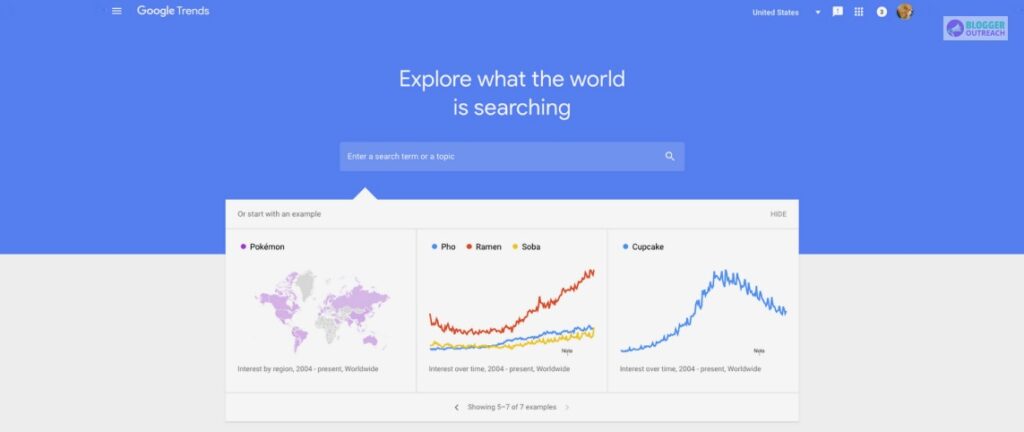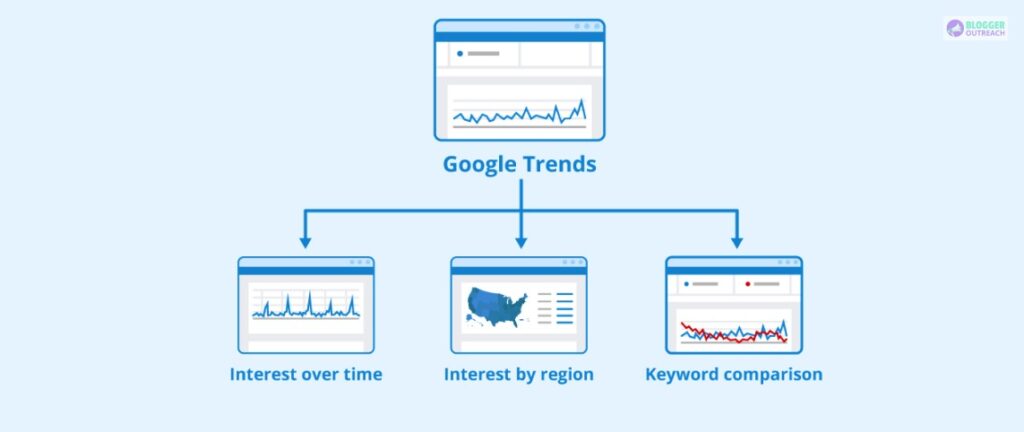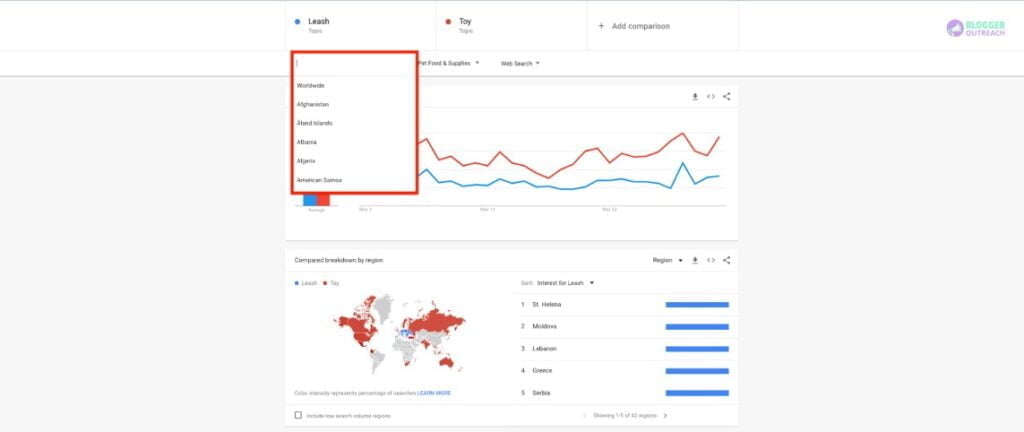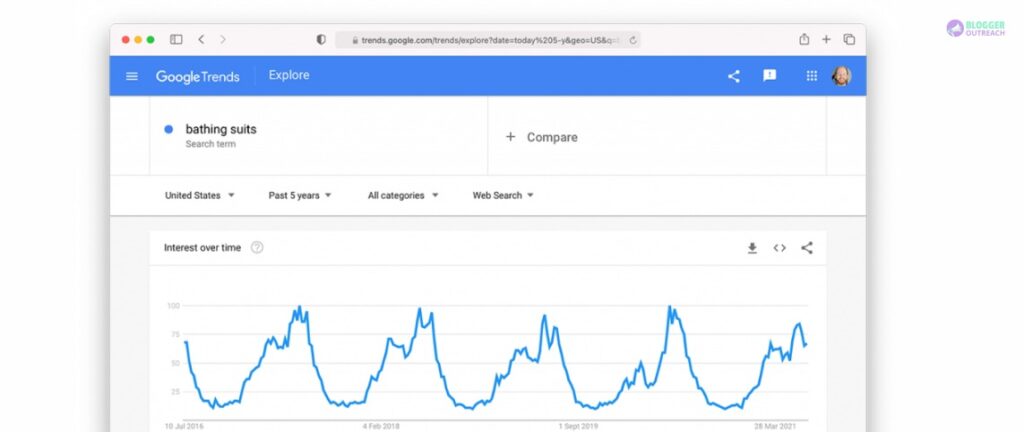Table Of Content
If you’re an entrepreneur or a marketer, Google trends can help you generate an endless sales stream for your business.
But how? You need to understand what’s not working to do what’s right for you. Google Trends help you to figure that out.
Google Trends is one of the most important factors in your SEO tactics. It helps you understand the trends and insights of the market.
Creating content for random topics will not work for you over some time. So before doing anything, you need to understand the most sought-after google search trends.
Google trends come up with important statistics related to consumer behaviour. For example, data helps entrepreneurs to strategize and rank higher in the Search Engine Results Pages (SERP).
What Are Google Trends?

Google Trends is a tool that allows users to identify popular terms on the internet. The data is gathered from Google’s search engine and displayed in an easy-to-understand graph.
This tool helps to track changes in search behaviour over time and can be a valuable asset for businesses and individuals who want to stay on top of the latest trends. Google Trends is also helpful for spotting potential new markets and understanding how people search for information online.
How Google Trends Works?

It holds many data samples and analyses the trends and user behaviour. If Google trends have random data, is it relevant for businesses? The answer is yes.
How to use google trends? Google Trends count on data normalisation, segregating data by interest and region. It compares a specific search query concerning the total number of searches in a specific region.
Another perk of using Google trends for businesses is scaling. Scaling is where the results are categorized in a range of 0 to 100. The 100th value in scale refers to the peak of interest.
6 Entrepreneurial Benefits Of Google Trends For SEO
If we dig deep, Google Trends For SEO has many benefits. Here we will discuss the top 6 benefits that help the business most.
1. Keyword Relevance

Every business needs to understand the user’s intent. Keywords are exact search terms that help to identify what people are searching for. Once you search for a particular phrase, it searches over the most popular keywords.
Google trend graph will display the search popularity over time. You can also change the time frame. You will get a clear idea of the actual trend.
Once you gauge the real directions, it will become easier for you to identify the relevant and related keywords.
The related keyword feature is also quite powerful in identifying closely related topics. For example, suppose you put a specific keyword; Google trends will come up with a list of keywords related to your search topic.
The more you get the idea of keywords, the better the chances of targeting your prospects.
2. Blog Idea Generation

Have You ever heard the term writer’s block? If you have ever written a blog, you know how challenging it is to generate constant blog ideas. Google Trends data helps you with that.
We have already mentioned that Google trends data aids you in figuring out the most popular and related searches. But do you know there is a term called ‘related query’? You‘ll find the related query table at the left.
A related query is the reference point from which you can take inspiration for your future posts. So you hover over the table, and you’’ get the topics garnering popularity from different corners of the world.
Given the popular topics, Ideation and content creation will be easier for you.
3. Keyword Volume Analysis

Finding the winning keywords is half the job done. If your content revolves around industry-recognized topics, there is a higher probability of reaching more people. Google search trends aid you with the same.
Change In Volume: Google Trends displays the keywords in order of their popularity. It also predicts the %rise in volume for future reference. Sometimes you’ll see the term ‘breakout’. While searching, if you see the term Breakout, you need to understand the keyword grew in volume by more than 5000%.
There are two aspects of breakout keywords. First, the good thing about them is that they are not that competitive. But the only demerit of breakouts is that they disappear after some time. So at times, they don’t reflect the real picture.
How to figure out the real trend? Identifying whether a trend is real or just a fad becomes challenging. In that case, you should focus on the time frame. Expand the period to 3-5 years to check whether the trend is long-lasting.
4. Unfold Local Search Trends

If you’re operating a business that demands local customers, Google trends can help you immensely. For example, imagine you have a cafe or a restaurant targeting the people who stay in your city. In that case, you can take help from Google trends. For example, the ‘interest by region’ option helps filter out your audience by their towns.
Even if your target audience stays in another city or country, you can also seek help from Google Trends. In this case, you can filter out the data by their region. Yes, this is the beauty of Google trends – it comes with geo-optimization.
Google trends is immensely helpful when it comes to identifying the search trends of a particular region and paving the way for analysing your market.
5. Targeting LSI Keywords

Before understanding how LSI keywords are relevant for SEO, let’s tap into LSI keywords first.
LSI Keywords: LSI (Latent Semantic Texting) is a mechanism that helps to identify contextually related synonyms of specific words. LSI keywords are the closest related phrases to your search query. For example, suppose you search for ‘credit cards.’ Your LSI keywords will be ‘credit limit,’ ‘credit score,’ ‘money,’ etc.
Google trends uplift your SEO effort through its list of LSI keywords. All you need is to incorporate those keywords into your content contextually. Content without context is meaningless, and this also holds for LSI keywords.
Furthermore, LSI keywords can help you with the organic rankings of your blogs and help you garner more traffic to your website.
6. Keywords For Video Optimization

Video content is the new king! Every business owner is quite aware of this fact. However, to create viral video content, you need to analyse the viral keywords.
Here’s how Google tends can help you to identify viral YouTube keywords:
- Go to Google trends.
- Change ‘web search’ to ‘YouTube Search’.
- Go through the related queries and related topics.
- Sort the results according to your preference.
The more you learn about trending video topics, the better your chances of producing scroll-stopping content. This is how businesses can streamline their video content strategy with Google trends.
Wrapping Up!
With every algorithm change, the SEO game is becoming trickier. As society progresses, more buyers are coming into the picture. With an increase in the number of people, businesses have to deal with various requirements.
Tapping into the behavioural patterns of a large audience is a challenge. Here Google trends can help you to filter out the most relevant trends. In addition, Google Trends is a great tool to help with SEO. It enables you to understand what people are searching for and how your site performs compared to others.
What do you think? Do you agree with us on this? Do Google trends have the ability to supercharge your business?
If yes, then high five! We are on the same page.
If the answer is no, comment below and let us know the reason behind your thought.
Thank you!
Read Also:









